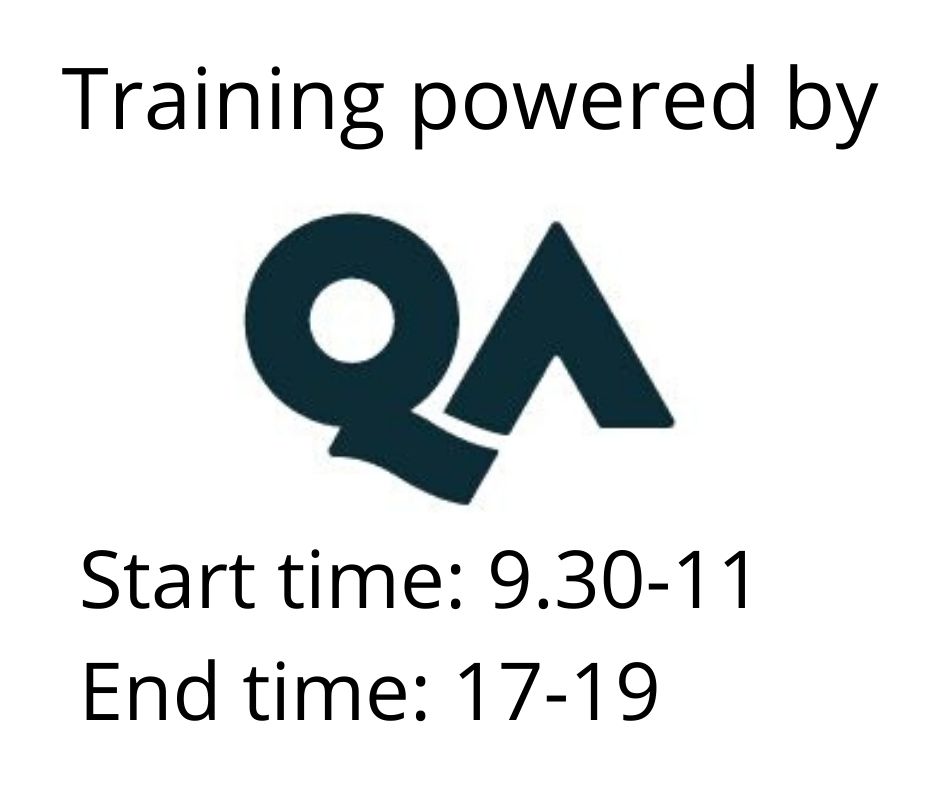Manage Conflict and Difficult Situations
Utbildningsformer
Remote
Längd
1 dag
Pris
12110 kr
The speed at which organisations need to take new and improved value propositions to customers and clients is never slower. The digital age brings such change so rapidly the pressure is always on. Our QA perspective is that with hybrid working, agile value chains and more complex organisational ecosystems, speeding quickly into difficult situations that lead to conflict, might feel inevitable and the damage can become uncontrollable and dramatic. But help is at hand if you adopt an emotionally sensitive view on conflict.
Conflict of ideas is often positive and, if well managed, can lead to more effective outcomes through rigorous discussion and exploration of ideas, generating more buy-in from stakeholders. However, conflicts that arise from tasks, processes and relationships can be more difficult to manage and require a structured approach to conflict resolution and an understanding of the styles at play, and how to work with them to find a resolution.
At the heart of this approach is the AGREE process for conflict resolution which starts with acknowledging the conflict from both sides and involves sharing perspectives, positions and interests and setting ground rules for how you will resolve the conflict. Reframing is the part where both parties work together to move beyond their acknowledged positions and interests to find a common ground that works for them, this is often where style preferences for conflict come into play. Language can play a part here where in the digital age technical language and business language can feel worlds apart.
What can Managing Conflict and Difficult Situations do for you and your organisation?
It can take the heat out of ‘all go’ culture we operate in. It makes the understanding of different perspectives and places easier and places them within the relationship of those at conflict not on either side divided by a chasm. Just by understanding how to manage conflict, it can also be avoided.
Investing in conflict avoidance and management allows organisation to go faster without these damaging and unproductive traps. The role of debate and conflict of ideas is highlighted as part of moving forward quickly including strategic experimentation.
Our approach to your spending time learning
We do not overload learners with too many ways of thinking about conflict or accepting it is always inevitable or negative. We share how much easier it can be to fall into conflict when working at speed and across many functional areas or across the business-technical divide.
In breakouts, situations where conflict becomes a slippery slope are discussed. Learners think deeply about when and how this has happened, its impact on performance and well-being – and how value is destroyed .
We clearly direct the learner to ways of thinking about conflict and behaving that set them up for looking out for situations that can descend into negative We provide a safe place to explore the emotions around being drawn into conflict.
Our aim is for learners to return to work energised with practical and considered ways of viewing conflict. Throughout the course, we pause to allow learners to think and record what their learning means. Learners walk away, not with a hurried plan they are not committed to, written at the end of the course. Instead, they own well-thought through approaches to translating the learning into their workplace, because they are built upon throughout the course, with professional facilitated help.
What’s included?
Included are sessions that clearly articulate how the learning can be translated into different contexts and different roles. Conflict is positioned carefully, including the impact of working at speed, in the digital age, in complex and demanding ways. As conflict is potentially all around us, we include connections to other relevant concepts, as and when relevant to the group being taught such as emotional intelligence, coaching for results and team dynamics.
- Identify the key sources and triggers of conflict in their context and environment
- Proactively address conflict issues before they escalate
- Utilise a structured framework for conflict resolution
- Flex and adapt conflict styles and encourage others to adapt their style
- Use a framework handling difficult conversations in an effective way
Our learning is geared towards people wishing to see conflict in a new light that they feel more in control of. We empathise with the ease with which the complexity of modern organisational life can be hijacked and by doing so welcome a broad audience.
There are no pre learning or pre-requisites. Learners are purely asked to come with their limited experience, and their understanding of their unique context.
Throughout learners are asked to complete a QA Leveraging Learning Log (LLL) so that learning is translated into relevant opportunities for growth – personal and organisational. Unique to QA, the LLL is a key part of our teaching and learning strategy that ensures learning flows back into the workplace with effort of course, but without wasted or un-co-ordinated effort.
The course takes a modern and effective approach to conflict in the digital age. It includes:
- QA’s Winning in the Digital Age Framework
- Sources and Triggers
- Conflict Style Preferences
- QA’s approach to Handling Difficult Situations
We look forward to running these events to make a difference to the learner and their organisation.
